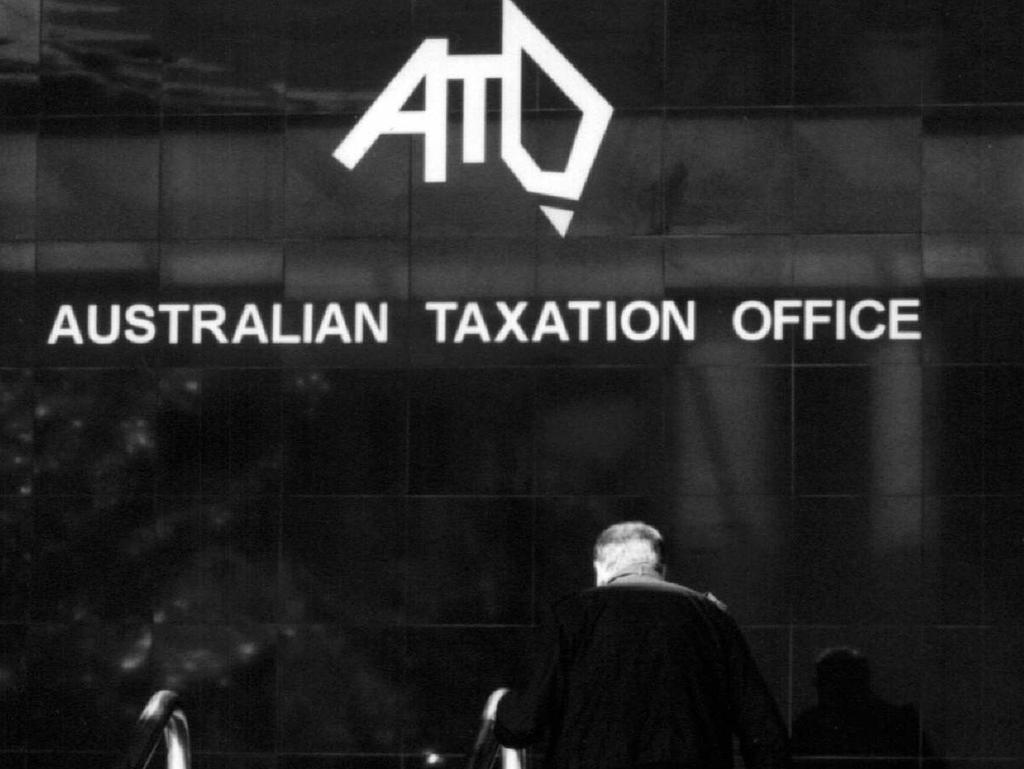
Like other relics of an era where citizens had few rights, it is falling apart and its disintegration is the most dangerous non-defence threat facing the nation.
All sides of the parliament should be equally concerned because once society’s confidence in its tax systems erodes, so does revenue.
One of Australia’s most reputable tax lawyers, Mark Leibler, points out that the taxation commissioner has “almost unlimited power to assess any person to any amount at any time”.
“The commissioner can raise an assessment on almost any basis he pleases, and then require the taxpayer to prove before the Administrative Appeals Tribunal or the Federal Court what their liability should have been.”
In other words the Australian tax commissioner has been given dictatorial powers that no other person in the land possesses and that structure goes against our entire legal system.
Worse, that power is now being abused over a wide area of the community. Even more serious, the early level appeal system is also disintegrating. For example, the ATO has been appointing those involved in the tax assessment to its internal appeal tribunals, while the Federal Court described a recent decision of the next appeal layer – the high-cost Administrative Appeals Tribunal – as “a denial of procedural fairness”. The High Court endorsed that Federal Court opinion by throwing out an ATO appeal without discussion.
Going to the Federal Court and High Court for taxpayer justice carries a cost beyond most individuals and enterprises.
I now put forward eight ATO power abuse cases and, while it’s just surface scratching, they show how deep and widespread the problem has become:
* In an unprecedented situation, the Inspector-General of Taxation has declared that the ATO’s garnishee actions against individuals and an enterprise in the Reid case was “contrary” to the taxation commissioner’s statement to parliament.
The Inspector-General was scathing of the ATO in its use of the garnishee business destruction practices and stated: “We are unable to provide assurance that the ATO’s garnishee action was reasonable in the circumstances and was in accordance with Practice Statement Law Administration.
Tax commissioner Chris Jordan will need to be recalled to the parliament to have the opportunity refute the Inspector-General’s accusation. The penalties for misleading parliament are severe.
* Three years ago, former ATO staff member turned whistleblower Richard Boyle alerted Australia to the ATO garnishee practices and for telling the truth he faces a court action that could see him jailed for life.
* The ATO told the government that by using ATO taxable income figures the government could automatically determine pension entitlements and where people had over-claimed.
This proved a total fiction because the ATO systems and taxable income figures are simply not good enough to make that sort of determination. The government has paid out $1.2bn to cover the ATO mistake and there has been great personal hardship.
* About five years ago the cream of Australian innovation received government research grants and spent them, but then in many cases the ATO demanded the money back and added penalties and interest. A generation of Australian research was lost. I pleaded with the then Minister industry, innovation and science Arthur Sinodinos to instruct AusIndustry to warn small businesses that accepting government research grants was high risk. The government is now trying to restore research.
* In 2015 the ATO discovered that $2.45 billion of state GST had been stolen in gold refining because the ATO did not block a loophole that other countries discovered and blocked around 2003. The ATO waited until April 2017 to stop the thieving of state GST money, by which time state losses exceeded $3 billion. Instead of chasing the thieves the ATO bankrupted most of the gold refining industry (the ATO declared they were not the thieves) and these actions have been declared invalid by the Federal Court and the ATO is not appealing. Gold refiners will seek damages and there is a $3 billion-plus state revenue black hole, which it appears the ATO was trying to cover up by its actions against the refiners.
* The ATO is attacking family trusts used by small and medium businesses to structure their business affairs. These trusts dominate small and medium-sized family businesses and have the “discretion” to distribute money/profits to beneficiaries (usually family members).
Under law that has operated in Australia for countless decades, the trusts are not required to distribute profits. Retained profits can be taxed in the trust.
In addition, the potential beneficiaries do not have to accept any trust distribution. The High Court of Australia will determine whether trust beneficiaries who have not actually received any money from the trust can be taxed.
* Not satisfied with the trusts attack, this year the ATO without warning or any pre-negotiation fired around 100 questions at the top private companies, demanding information that goes to the heart of how their companies are managed.
While some questions are reasonable, the “laundry list” of queries seeks detailed management information that appears to have little relevance to the business of collecting tax.
It’s a massive, costly task which the companies are required to complete this month and is clearly a prelude to a long-term attack on the engine room of our wealth creation.
* The ATO has started using emails between people not parties to a case to manufacture tax assessments and action against taxpayers. The AAT endorsed this deplorable practice but thankfully the Federal Court and the High Court rejected it. No one knows how many people have been victimised with false assessments made this way but as Mark Lieber explained, the ATO has the power to take these actions unless the courts intervene.
The behaviour set out above is not sustainable for any democratic nation.








The Australian taxation collection system is now some 85 years old and is a relic of our colonial past.